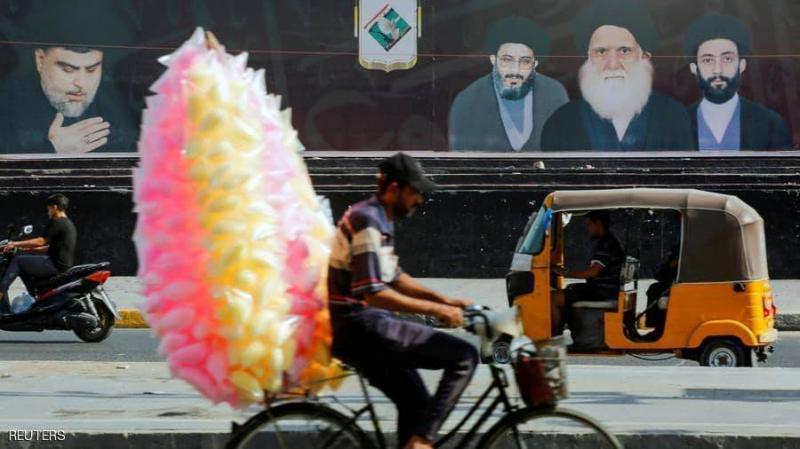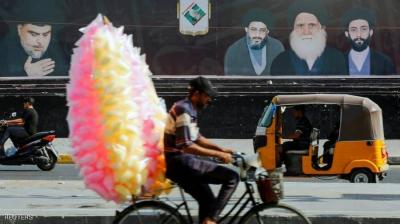Under the title "Iraqi Elections: Scenarios for Parliamentary Alliances," Sky News reported that after the Sadrist Movement led by Muqtada al-Sadr emerged in first place nationally and among Shia groups, according to preliminary results from the early Iraqi elections held last Sunday, rival Shia factions, especially the "Fateh Alliance," which is the political wing of the Popular Mobilization Forces, have declined. The State of Law Coalition, led by former Prime Minister Nouri al-Maliki, follows in second place among Shia forces.
Statements from leaders within the State of Law and the Coordination Framework, which includes it along with Fateh and a group of smaller Shia factions, indicate their intention to form an expanded coalition to create the largest bloc within the new parliament, thereby allowing them to form the government as they claim.
To comment on the overall interactions and transformations brought about by the preliminary election results in the Iraqi Shia power map, Iraqi political researcher Ahmad al-Adhami stated in an interview with "Sky News Arabia": "What the leader in the State of Law coalition, Alia Nasif, stated about their coalition being able to form a new alliance consisting of 85 deputies, along with Fateh and other blocs, is not surprising. This is a game that Nouri al-Maliki has played before and succeeded with against his competitor Iyad Allawi, but the story is different now."
Al-Adhami explains that while the election results have indeed brought Maliki back into the spotlight, they have also brought the entire Fateh Alliance under his banner. However, the Sadrists have the capacity, for example, to ally with the Kurdistan Democratic Party, which won 34 seats given the noticeable rapprochement between the two sides recently. This would be sufficient for them to remain an influential force in parliament. Maliki, by gaining more than 85 deputies, also attempts to create a barrier in parliament to prevent any project or decision aimed at fully integrating the Popular Mobilization Forces into security forces, as this would directly lead to the loss of all ideological leaderships that the PMF depends on for its formation and loyalty to Iran, which could mean the complete end of the PMF.
Al-Adhami elaborates on the background of the alliance between State of Law and Fateh, stating: "This alliance also stands against any projects that could harm the funding of the PMF in any way, to preserve the gains that these factions have achieved through the PMF. Returning to the scene of negotiations to form the new Iraqi government, even if the Sadrist Sa'eron Alliance is the strongest, it knows that it cannot form a government without a political agreement, as was the case with previous governments. This agreement will be the decisive factor in the near future."
The larger and clearer bet for the State of Law is what will result from the high pressure currently being exerted on the Electoral Commission, according to the Iraqi researcher who claims: "If they manage to gain a number of seats due to this pressure, the equation could turn against al-Sadr, forcing him to seek other partners to add to the Kurdistan Democratic Party to keep his chances strong in his pursuit of the prime ministership."
Meanwhile, the director of the Political Thinking Center, Ihsan al-Shammari, points to profound changes in the mood of the Iraqi Shia voter, stating: "This decline in the number of seats for the Fateh Shia bloc clearly indicates that Iraqi Shia, as a component and voters, are against the swallowing of Iraq by certain regional powers controlling the Iraqi political decision, especially since we now observe the rise of what can be called Shia nationalists, as a national trend in the Iraqi Shia street, which is sweeping the scene and pressing for the guarantee of Iraq's independence and freeing it from external domination across the borders."




